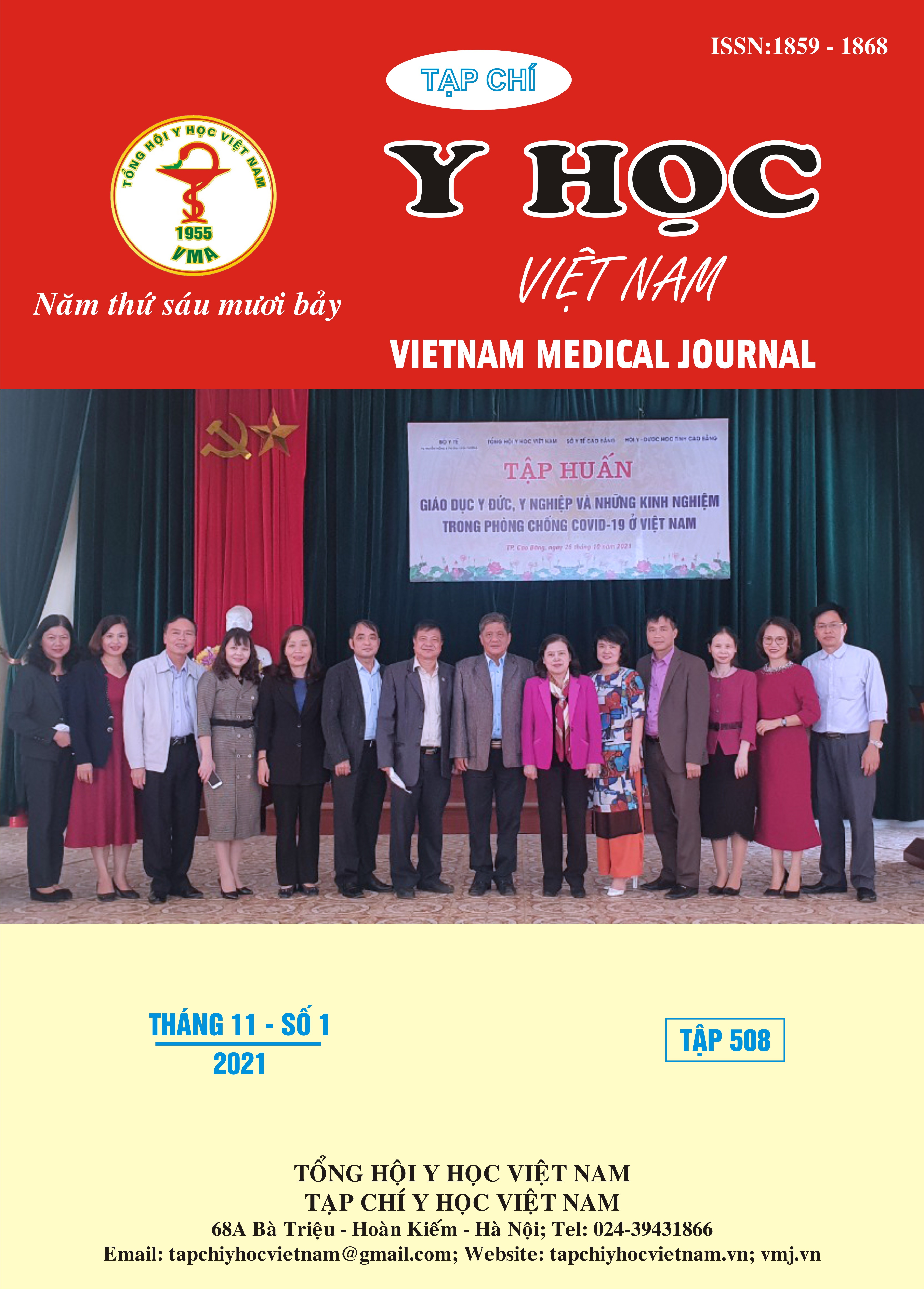KNOWLEDGE, ATTITUDE, AND PRACTICES OF GBS SCREENING IN WOMEN BETWEEN 36 WEEKS AND 37 6/7 WEEKS AT TU DU HOSPITAL
Main Article Content
Abstract
Background: GBS is one of the common agents causing infection in newborns which may leads to deaths in certain cases. Screening strategy of GBS in pregnant women has been proved the ability to lower the prevalence of this disease; however, the practice of this test is still not well-known among women and do increase concerned as time goes by. Objective: To assess the knowledge, attitude, and current practices of pregnant women towards GBS screening at Tu Du Hospital. Methods: A cross-section study of 385 pregnant women from 36 to 37 6/7 gestational weeks was conducted between November 2020 and March 2021 at Tu Du Hospital. Results: The rate of having certain knowledge about GBS screening was 27,5% [95%CI: 0,23-0,32]. There were 42,6% women showed preference for universal culture-based GBS screening strategy over risk-based strategy. The practice rate when the interview started was 6,8% [95%CI: 0,04-0,10]; however, after 6 weeks, there was totally 13% agreed to have the screening test in the end. Conclusions: The rate of having certain knowledge about GBS screening, the practice rate of the women quite low. However, almost half of pregnant women supported the universal screening strategy
Article Details
Keywords
Screening, Streptococcus group B, prenatal care
References
2. Brodszky V, Biro A, Szekanecz Z, et al. Determinants of biological drug survival in rheumatoid arthritis: evidence from a Hungarian rheumatology center over 8 years of retrospective data. Clinicoecon Outcomes Res. 2017;9:139-147.
3. Sullivan E, Kershaw J, Blackburn S, Mahajan P, Boklage SH. Biologic Disease-Modifying Antirheumatic Drug Prescription Patterns Among Rheumatologists in Europe and Japan. Rheumatol Ther. 2020.
4. Aaltonen KJ, Joensuu JT, Pirila L, et al. Drug survival on tumour necrosis factor inhibitors in patients with rheumatoid arthritis in Finland. Scand J Rheumatol. 2016;46(5):359-363.
5. Smolen JS, Landewe RBM, Bijlsma JWJ, et al. EULAR recommendations for the management of rheumatoid arthritis with synthetic and biological disease-modifying antirheumatic drugs: 2019 update. Ann Rheum Dis. 2020;79(6):685-699.
6. Fraenkel L, Bathon JM, England BR, et al. 2021 American College of Rheumatology Guideline for the Treatment of Rheumatoid Arthritis. Arthritis Care Res (Hoboken). 2021;73(7):924-939.
7. Berger N, Peter M, DeClercq J, Choi L, Zuckerman AD. Rheumatoid arthritis medication adherence in a health system specialty pharmacy. The American journal of managed care. 2020;26(12):e380-e387.
8. Rashid N, Lin AT, Aranda G, Jr., et al. Rates, factors, reasons, and economic impact associated with switching in rheumatoid arthritis patients newly initiated on biologic disease modifying anti-rheumatic drugs in an integrated healthcare system. Journal of medical economics. 2016;19(6):568-575.


